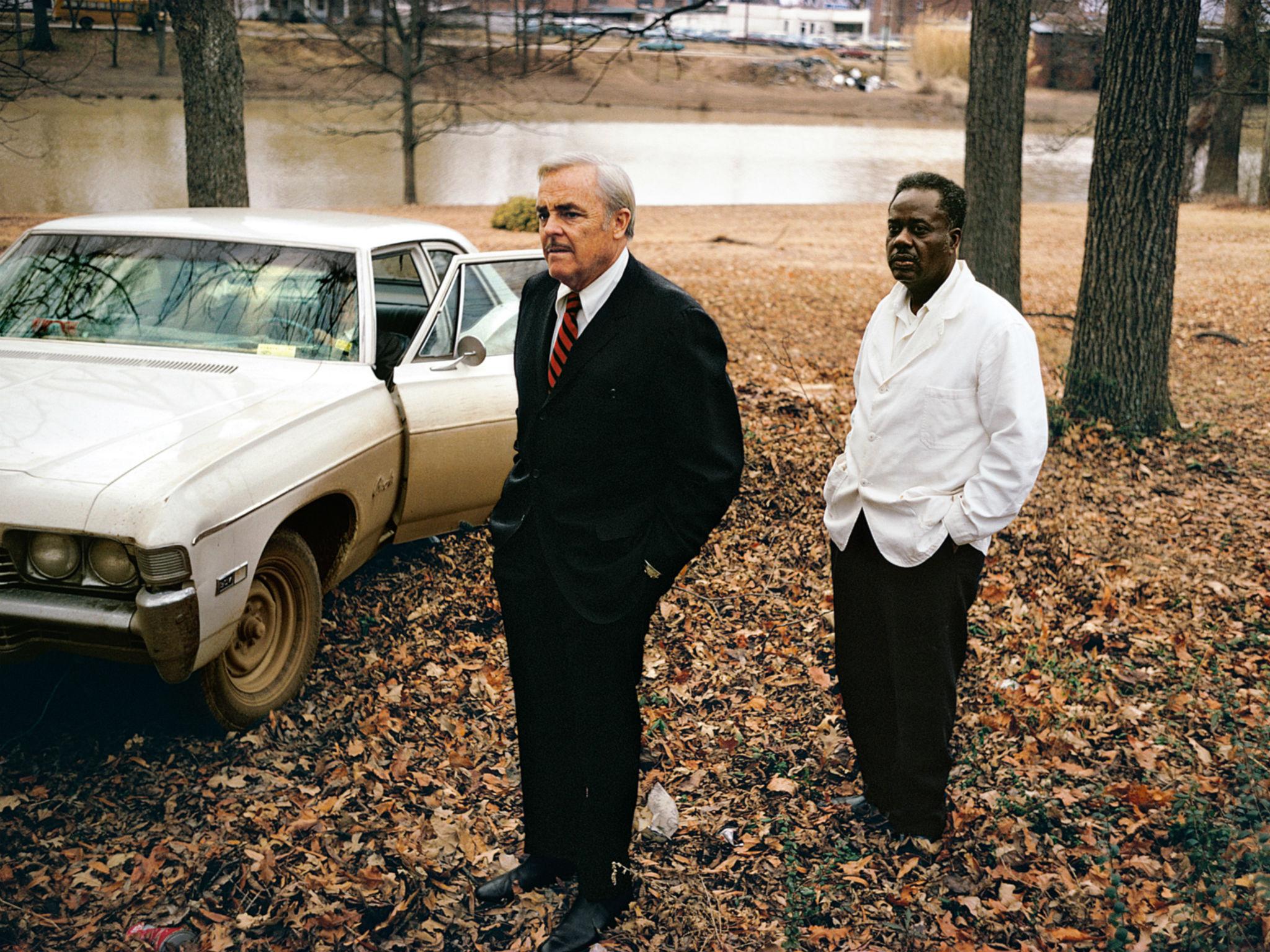William Eggleston: Portraits, National Portrait Gallery, review: 'Portraits stay with you long after you leave'
William Eggleston is now considered to be one of the great living photographers and this exhibition at the National Portrait Gallery, the first that focuses on his portraits, confirms his importance

Your support helps us to tell the story
From reproductive rights to climate change to Big Tech, The Independent is on the ground when the story is developing. Whether it's investigating the financials of Elon Musk's pro-Trump PAC or producing our latest documentary, 'The A Word', which shines a light on the American women fighting for reproductive rights, we know how important it is to parse out the facts from the messaging.
At such a critical moment in US history, we need reporters on the ground. Your donation allows us to keep sending journalists to speak to both sides of the story.
The Independent is trusted by Americans across the entire political spectrum. And unlike many other quality news outlets, we choose not to lock Americans out of our reporting and analysis with paywalls. We believe quality journalism should be available to everyone, paid for by those who can afford it.
Your support makes all the difference.William Eggleston is considered to be one of the greatest living photographers. This small but meaty exhibition at the National Portrait Gallery in London – the first that focuses on his portraits – confirms his importance. But it was not always thus. Eggleston’s introduction of colour, defying the idea that only black and white photography was worthy enough to be called art, led to his work being met with hostile criticism at his first show at the Museum of Modern Art in New York in 1976.
Eggleston was born in 1939 in Memphis, Tennessee, in a largely rural area of the American south, then deeply divided by class and riven by racism.
Photography can capture a moment, and Eggleston does not just chronicle events but delivers images that are ambiguous, allowing many possible interpretations.
There is no doubt that Eggleston has been very influential among film directors. Sofia Coppola states in her preface to the catalogue: “Eggleston has been a big inspiration for me and for so many others... So many people take these simple snapshots of life, but there’s something about Eggleston that no one can match.”
Walking through the exhibition, I see more David Lynch than Coppola. In Untitled, 1965-68 (Memphis, Tennessee), an elaborately coiffed woman shot from the back faces an unseen companion. Her crisp checked seersucker dress accessorised with pearls denotes a certain social status, but the green plastic covered booth suggests another. The protagonists are both smoking and seem somehow remote, though their gestures mimic each other. A more Lynch-like image would be hard to imagine.
But it is not just filmmakers who have been inspired by Eggleston. By elevating the snapshot moment into the psychological portrait, he “allowed” a different kind of mundane subject to become suitable for scrutiny. Untitled, 1965 (Memphis, Tennessee), a shot of a young man racking up supermarket trolleys captured in sharp relief in the blaring sunlight, is compelling not only as a study of working-class youth but equally for the woman captured beyond, out of focus, mysterious behind her sunglasses.
One of Eggleston’s best-known photographs, Untitled, 1969-70 (the artist’s uncle, Adyn Schuyler Senior, with assistant Jasper Staples, in Cassidy Bayou, Sumner Mississippi), shows employer and employee as a study in black and white. The white boss and the black worker's postures are almost identical. It is clearly about social status, although not screamingly so.

In Untitled, c. 1965-69, two people pass each other. A black woman peers at the photographer close to a white man, jacket low-slung. Beyond, the small-town street shimmers in the heat. The two figures are physically close but seemingly unaware of the other.

There are portraits of celebrities on show – a close-up of Joe Strummer of the Clash – but it is the portraits of ordinary, ambiguous people that capture my eye. Untitled, 1970 (near Minter City and Glendora, Mississippi) is a wonderful example of Eggleston at his best. A black woman with some covering on her head is carrying what could be a receptacle for water, walking off a road onto a dirt track. She is in the middle of nowhere, the sky above quasi-threatening: what is this woman doing? Why is she here?

I can see why Eggleston admired Henri Cartier-Bresson, who once said: “William, colour is bullshit." Eggleston introduces something different in his portraits. With Eggleston’s images there is not the carefully focused eye of Cartier-Bresson, nor the crispness of place of Ansel Adams. But in their open-endedness and generosity for interpretation, Eggleston’s portraits stay with you long after you leave the NPG.
William Eggleston: Portraits continues at the National Portrait Gallery until 23 October. www.npg.org.uk
Join our commenting forum
Join thought-provoking conversations, follow other Independent readers and see their replies
Comments